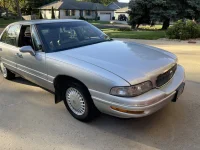300k miles is about 483Mm. Less than half a million Kilometres! Nothing to worry about.

If you want to prevent oil consumption, it may help to understand how and where it could happen.
1) worn piston rings
2) stuck piston rings
3) worn cylinders (out of round, bore polishing etc)
4) valve guides
5) turbocharger bearings
6) bad design (for example a particularly bad combination of PVC system and low tension rings, like in Saab's B205/B235).
Issues 1->3 can be addressed by using proper oils at appropriate intervals, and by using the engine car sensibly. Avoid short tripping, drive gently until engine has reached operating temperature, use the whole rev band from time to time, vary load (rev her when merging onramps, use engine breaking...)
4) will happen eventually - just get them done when it happens.
5) will happen eventually, but can be postponed by hundreds of thousands of kilometres by treating your turbo nicely: synthetic oils only, cool down before shutting the engine off (if you've driven fast or with high load, i.e. used boost and have high exhaust temperatures, drive gently for a few km, and always idle for at least 30 seconds before shutting off).
Fix for 6): Don't buy such a car.
Bonus tip regarding engine longevity (though not related to oil consumption): change coolant regularly. Coolant is not only anti-freeze, but also acts as an anti-coroosive. If there are several different metals used within the coolant circuit (think iron engine block, aluminium head, copper cooler or piping) galvanic corrosion quickly rears it's ugly head. I am also under the impression that frequent coolant changes greatly reduce the frequency of head gasket failures (and failed headgaskets, besides being costly to exchange, can also damage the lower end, as antifreeze and oil dont like each other. Coolant in the oil will kill crank and piston rod bearings quickly).
